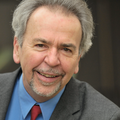TMP Course Descriptions: Period 2

TMP Course Descriptions: Period 2
The course schedule below is for March 23-27, 2026
Period 2: 10:20 AM - 12:20 PM
Course Overview
Personalize your focus of study by selecting a course from the offerings below. Scroll down to read the full course descriptions and instructor profiles for each option.
| Select One | |
|---|---|
| B1 | The Art of Positive Leadership Led by: Felicia Zigman, MPH, FZ Coaching |
| B2 | Reinvent Yourself and Thrive Led by: Terry D. Schmidt, MBA, Management Concept Inc. |
| B3 | Understanding the Emotional Process of Leading Change Led by: Chip Espinoza, Ph.D., Dean of Strategy, Innovation at Vanguard University |
| B4 | High Impact Communication Led by: Laura Hyde, MEd, Morgan Training Company |
Ready to register? Complete your enrollment form today.
Full Course Descriptions |
B1 | The Art of Positive Leadership
Learn how to cultivate wellbeing and mindset in the workplace.
Led by: Felicia Zigman, MPH, FZ Coaching
This Positive Leadership course is designed to equip participants with essential skills and insights to create a healthy and productive workplace culture. The program explores the intricate balance between personal needs, the needs of team members, and the overarching needs of the business.
Beginning with the foundational concept of "Fueling Your Own Tank," participants delve into strategies for increasing personal vitality and professional engagement, including aligning with values, savoring positive experiences, cultivating gratitude, and understanding the importance of achieving a balance in giving to oneself and to others. The course then expands into the realm of emotional literacy, emphasizing self-awareness, self-regulation, empathy, and social skills to enhance relationships.
The importance of feedback is highlighted in the context of personal and professional growth, fostering a culture that embraces constructive feedback, a growth mindset, and continuous professional development. The course also delves into the synergy between individual strengths, team dynamics, and organizational success.
Participants engage in practical applications of positive leadership principles through final presentations, demonstrating their ability to integrate personal, interpersonal, and organizational needs for a holistic and positive work environment. By the course's conclusion, participants are poised to apply positive leadership practices that contribute to individual well-being, cohesive team dynamics, and sustained business success.
Upon completing the Positive Leadership course, learners will:
1. Enhance Personal Vitality and Happiness:
- Identify and align personal values, fostering a sense of fulfillment.
- Implement strategies for savoring positive experiences and cultivating gratitude.
- Recognize the importance of balance in self-giving and contributions to others.
2. Elevate Emotional Literacy:
- Develop self-awareness to understand and manage personal emotions effectively.
- Implement enhanced self-regulation strategies
- Cultivate empathy and refine social skills for stronger interpersonal relationships.
3. Foster an Open Feedback Culture:
- Acknowledge the value of constructive feedback for personal and professional growth.
- Embrace a growth mindset that views challenges as opportunities for learning.
- Engage in continuous professional development to adapt to changing workplace demands.
4. Apply Positive Leadership Principles:
- Demonstrate the integration of personal, interpersonal, and organizational needs.
- Showcase practical applications through final presentations.
- Develop a holistic leadership approach contributing to individual well-being, cohesive team dynamics, and sustained business success.

Felicia Zigman, MPH
FZ Coaching
B2 | Reinvent Yourself and Thrive
Discover how to unlock your greater life purpose, and how to perform at a high level of excellence. Bring your curiosity and courage to experience this unusual and transformative learning adventure.
Led by: Terry Schmidt, MBA, Management Concepts Inc.
You’ve mastered your craft—but what about your life? In this empowering course, you’ll tap into your core values, build your personal leadership identity, and design a future that excites you. It’s you—2.0. This isn’t fluff—it’s a grounded, guided process to elevate how you think, feel, and lead. You’ll come out clearer, braver, and ready to thrive in work and life.
You already know how to solve external problems. This course helps you solve the internal ones—the doubts, the drift, the outdated identity. Through guided exercises, unique challenges, and real conversations, you’ll gain the mindset and methods to reinvent your life and career from the inside out. If you're stuck or ready to evolve, this course is your launchpad.
Learning Outcomes:
- Uncover your authentic life mission and align your choices, energy, and goals to what truly matters most
- Craft a personal leadership identity—a compelling “prototype of excellence”—and embed it into your daily mindset and behavior
- Break free from limiting paradigms and install empowering beliefs and behaviors that support your evolution
- Develop high-performance habits based on intentionality, emotional intelligence, and strategic self-leadership
- Access peak states of motivation and focus, even in the face of stress, fear, or change
- Learn how to act decisively in uncomfortable situations, building the courage to lead without waiting for conditions to be perfect

Terry D. Schmidt, MBA
President, Management Pro
B3 | Understanding the Emotional Process of Leading Change
Explore why people and the organizations they work in struggle to embrace and execute change initiatives. Examine the role of the managerial leader in relation to the organization's emotional process when change is initiated.
Led by: Chip Espinoza, Ph.D., Dean of Strategy & Innovation, Vanguard University
General Summary: Most organizations do not lack analytics, ideas, or change processes–they struggle with the people side of executing. This course promises you will better understand why change fails and the adjustments you can make to lead change successfully.
Primary objective: Help students understand the emotional processes that lead to engagement with and commitment to change. As organizations and the environments in which they operate get more complex, change management is becoming exponentially important.
Outcomes: While the focus is not on change theory, students will be introduced to a cursory review to understand the emotional process’s significance better as it relates to change. Students will learn to embrace resistance, be a non-anxious presence during change, understand how leaders get sabotaged and diagnose systemic dynamics that undermine change initiatives.
Course Outline:
Day One: We will explore change theory and popular change processes. Particular emphasis will be on white water, a metaphor change leadership expert Peter Vaill uses to explain the dynamic environment in which change occurs. He argues, “No sooner do you begin to digest one change than another one comes along to keep things unstuck.” We will discuss why people naturally resist change and strategies for embracing the resistance.
Day Two: We will cover why leaders resist embracing change feedback. Ironically, the more things change for the better, the more discontent people become. Abraham Maslow referred to the phenomenon as the Theory of Rising Expectation. We will learn strategies for receiving critical feedback and interpreting it. We apply the concept of Force Field Analysis to a change initiative.
Day Three: We will discuss how leaders create a sense of urgency about the need to change. Ronald Heifetz suggests, “The role of leadership is to create enough discomfort that people feel the need to change and to create a safe enough environment in which they can change.” We will talk about how to create a safe environment for change.
Day Four: We will explore the concept of incremental change and its relation to transformational change. The day will focus on the managerial leader as a change agent and exercising transformational leadership. The four stages of transformational leadership critical to leading change are self-leadership, one-on-one leadership, team leadership, and organizational leadership. We will discuss each of the stages and self-reflect on strengths and weaknesses.
Day Five: We will discuss the importance of empowerment in the execution of change. Recognizing when people and organizations are stuck is critical to understanding how to initiate and manage change. The life cycle of organizations, products, and processes indicates how emotionally ready an organization is.
The content of this course is theoretically based, and practitioner-proven (the why and how of successfully leading change). Participant learning will result in self-efficacy and observed competence.

Chip Espinoza, Ph.D.
Dean of Strategy & Innovation at Vanguard University
B4 | High Impact Communication
Research shows that most “unhappiness” in the technical business world comes not from poor technical skills, but from poor communication. Effective communication plays a pivotal role in nearly every aspect of business.
Led by: Laura Hyde, M.Ed., President, Morgan Training Company
Skilled communication impresses colleagues and customers, promotes the effective flow of information, and creates a more harmonious and productive business environment, while poor communication skills can cause confusion, frustration, misinterpretation, inefficiency, and lost business. Moreover, ineffective communication can limit a technical professional’s potential growth and value to the organization.
This course provides a set of communication tools, techniques, and strategies to address communication challenges, including:
- How to cultivate and strengthen relationships with colleagues
- How to effectively communicate and interact with people whose personality and behavioral styles are different from yours
- How to get colleagues/clients to make and keep commitments
- The key elements of effective and productive meetings
- Strategies and techniques to establish and strengthen credibility
- How to avoid ambiguity, assumptions and confusion
- Dealing with indecision—how to get decisions so you can move forward
- How to motivate colleagues (in spite of lack of authority)

Laura Hyde, M.Ed.
President, Morgan Training Company

Register Now
You will select one course from each of the four periods to create your customized schedule.
Please indicate on the reservation form your second and third choices in the event your first selections are not available.

